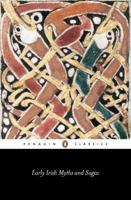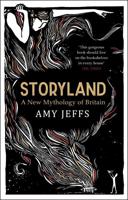Publisher's Synopsis
Bored teenager Curzio Inghirami staged perhaps the most outlandish prank of the seventeenth century when he hatched a wild scheme that preyed on the Italian fixation with ancestry by forging an array of ancient Latin and Etruscan documents. Stashing the counterfeit treasure in scarith (capsules made of hair and mud) near Scornello, Curzio reeled in seventeenth-century Tuscans who were eager to establish proof of their heritage and history. However, despite their excitement, none of these proud Italians could actually read the ancient Etruscan language, and they simply perpetuated the hoax. Written with humor and energy by Renaissance expert Ingrid Rowland, The Scarith of Scornello traces the career of this young scam artist whose "findings" reached the Vatican shortly after Galileo was condemned by the Inquisition, inspiring participants on both sides of the affair to clash again-this time over Etruscan history. In her investigation of this seventeenth-century caper, Rowland captivates readers with her obvious delight in Curzio's far-reaching prank.
"Rowland reconstructs the whole story with flair and zest."-Merle Rubin, Los Angeles Times Book Review
"Rowland skillfully weaves her way through this long-forgotten controversy, framing it within the cultural and political struggles between Rome and Tuscany, and the larger intellectual debates of the period. At every turn she provides fascinating detail about the workings of the scholarly world. . . . In a mere 150 pages . . . she summons up a world and an age."William Grimes, New York Times
"A remarkable book . . . Rowland's account . . . has the verve of a good detective story."Joseph Connors, New York Review of Books
"A fascinating, erudite book."-Spectator
"Rowland reconstructs the whole story with flair and zest."-Merle Rubin, Los Angeles Times Book Review
"Rowland skillfully weaves her way through this long-forgotten controversy, framing it within the cultural and political struggles between Rome and Tuscany, and the larger intellectual debates of the period. At every turn she provides fascinating detail about the workings of the scholarly world. . . . In a mere 150 pages . . . she summons up a world and an age."William Grimes, New York Times
"A remarkable book . . . Rowland's account . . . has the verve of a good detective story."Joseph Connors, New York Review of Books
"A fascinating, erudite book."-Spectator










